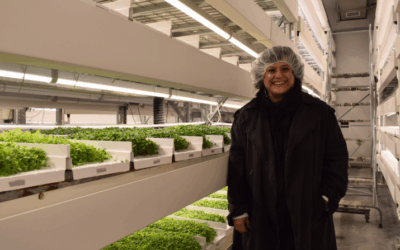Capital punishment is rarely implemented in Wyoming. It was last used in 1992, and there are currently no state inmates on Death Row. But despite it not being used often, the death penalty still costs taxpayers. So much so, that Governor Mark Gordon considered a moratorium on capital punishment this year in order to save his state money during a budget crunch. I spoke with State Public Defender Diane Lozano about some misconceptions people have about the death penalty.
LOZANO: Well, I think people think because we don’t have anybody on death row, and they’re not reading about a capital case trial, that we aren’t spending money on the death penalty. I still have to spend money to train my attorneys. I’ll tell you and your audience, that in 2013, we were paying on so many capital cases that we actually ran out of money. So as the director of the public defender’s office that represents 15,000 people a year, having even the threat of a death penalty case on the horizon makes us worry that we might not be able to make it to the end of the budget year. We might not be able to provide the Sixth Amendment rights to our regular everyday clients, much less our capital case clients.
WALKEY: Is there any evidence that the death penalty actually stops crimes from happening in the first place? Is it a deterrent?
LOZANO: Not not that I’m aware of. And lots of studies have been done. Amnesty International has done studies. We know that murder rates are still high in the Bible Belt. And the Bible Belt is where the death penalty is sought and used and carried out the most often. We know that in the northeast section of this country, there really isn’t the death penalty, and murder rates have stayed steady or dropped. So, you know, no, I don’t think there’s any evidence of that. Most murders, even people who are convicted of calculating the death of somebody else and planning it and carrying it out with cold malice, are acting as emotional human beings. And they aren’t stopping and thinking.
WALKEY: What do you think that the state of Wyoming should do to address the death penalty moving forward?
LOZANO: I’d like to see the death penalty repealed. We’re spending money on a system that just isn’t working. Of those cases, I told you have gone to a jury, and in what you would think are horrendous cases—witnesses being killed before trial, children being abused and then dying from that abuse, a whole family being killed by somebody—jurors are, when given the option between death and life without parole, are sentencing people to life without parole. It just has an impact on human beings. It has a profound impact on 12 jurors who have been told by a prosecutor that they have to decide whether or not somebody lives or dies. I would challenge policymakers to talk to jurors who have had to make that decision. I consider myself a capital defense attorney and I don’t think that I would choose any other career. As long as we have the death penalty, I hope that my work is to help abolish it.
WALKEY: And I’d like to learn a little bit more—about as someone who works with the death penalty—what led you to that point of view? You know, have you always felt that way?
LOZANO: Well, certainly, I’ve always had a moral objection to the government taking the life of another human being. So it wasn’t a giant leap for me to know that I would be against the death penalty. But then certainly once you start working with criminal defendants—whether it’s for a DUI or in a capital murder case—I mean, it just was reinforced to me that human beings are human beings and a lot of us end up where we are today, certainly by choices that we make, but also because our life path forms were formed for us because we were born with a mental illness or we were born without a loving parent. Maybe we weren’t born with any money. And none of those are excuses. But it certainly I think mankind is a lot better than most people think that it is. And I truly, honestly believe that each person that I represent, whether in a capital case or otherwise, is so much more than their worst mistake or their worst conduct.
WALKEY: So as someone who works with your clients, who in many cases are convicted or maybe committed crimes that are really horrible, right? And one thing I’ve heard, people who support the death penalty say is, well, why? Why are supporting them in these state facilities? And can you just talk about your interactions with clients that, as you said, made these mistakes?
LOZANO: I mean, first, we know that death penalty cases cost more pretrial. It costs more at trial, and then it costs more to have somebody on death row and to go through the appellate process that both the constitutions require to happen in those cases. So we know it doesn’t really save money. And, you know, our Constitution is based on humane grounds. The Wyoming Constitution is an incredible document that I encourage everybody to read. It is designed to limit government, but it’s also designed on compassionate and rehabilitative grounds. And in my experience, I have not had a client who is so irredeemable that they don’t have some value. Our government and our Constitution and the criminal justice system is not designed to give up on people. I would submit that jurors and the constituents of Wyoming would agree with that. That no human being deserves to be put to death just because we’re going to give up on them.
WALKEY: Diane thanks so much for joining me. I really appreciate you taking the time and I hope you enjoy the rest of your day.
LOZANO: You’re welcome. Thanks Will.






